Adding solar power to the rooftop of an existing building is always a challenging endeavor. Ensuring the roof is compatible with the photovoltaic system is critical. When the roof is on a historic structure built in the 19th century, the variables get even tougher to pin down. When that building is operating as a world-class hotel in a bustling downtown area, the degree of difficulty gets even higher.
The site of the Kimpton Hotel Monaco in Washington, D.C., brought all of these factors into play, but New Columbia Solar (NCS), a Washington, D.C.-based solar energy company, embraced the challenge. NCS wanted to electrify a federally owned historic building to set a precedent for the modernization of historic buildings across the entire district with solar power. NCS reached out to the hotel’s owners, who were committed to sustainable business practices, and they enthusiastically agreed to look into adding solar power.
Originally built between 1839 and 1844, the building that now houses the Kimpton Hotel Monaco was designed by the famous architect Robert Mills, who later designed the Washington Monument. The four-story marble structure was expanded between 1855 and 1866. The site served as the country’s first General Post Office and was declared a National Historic Landmark in 1971. It is still owned by the Government Services Administration (GSA), but as part of a 60-year lease agreement, the building was renovated and transformed into a 184-room luxury hotel.
Evaluating the Building
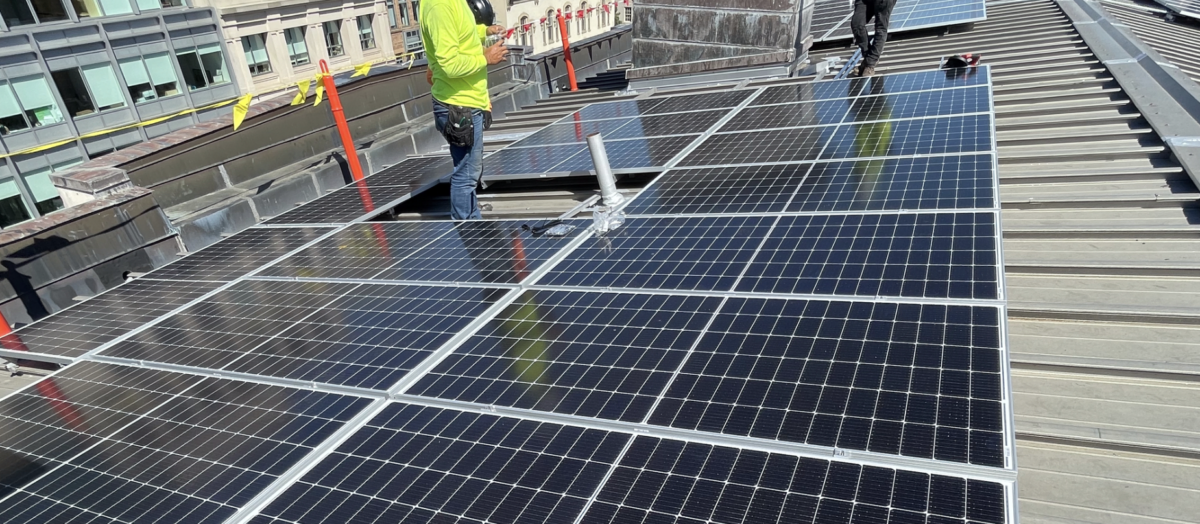
Key factors in the design of the solar system included preserving the historic nature of the building and ensuring the equipment remained out of public view. A crucial step in the decision-making process involved determining if the existing roof system could perform well for the life of the solar array or if a new roof would have to be installed. NCS reached out to Fortis to evaluate the roof and provide a solution for the life of the system.
“Fortis provides roof performance programs that guarantee a commercial roof’s performance and caps the building owner’s financial responsibility with a comprehensive warranty,” says David Schupmann, chief operating officer of Fortis. “Fortis was introduced to this project by New Columbia Solar. They are a powerhouse EPC solar firm in the D.C. market. Together we were uniquely qualified for all the obstacles that were rolled into this project.”
New Columbia Solar wanted a 20-year power purchase agreement (PPA) on the building, and they wanted to ensure the roof system would perform over that time period. “Within our suite of Roof Performance Program solutions, we have a solar version for commercial buildings,” Schupmann says. “We work with EPCs upfront and offer them a unique offering for their projects that saves them time and money compared to traditional options and opens them up to many more building opportunities that are not typically available to them due to age or costs.”
After a thorough roof assessment, Fortis determined that the roof would be a great candidate for their solar program after some preventative maintenance and reconditioning of the structure’s existing standing seam metal and EPDM roof systems.
“Solar was a great fit for this roof for several reasons,” Schupmann notes. “First, Hotel Monaco and GSA had great leadership who saw the opportunity and were determined to make it happen. The building was well positioned in the city, and having primarily a standing seam roof with good slope, the roof had great sun exposure. There were great local solar incentives and community solar programs. The roof was in good condition to start with, and when Fortis added an initial reconditioning scope combined with ongoing care from our roof performance program and a robust warranty, a secure substrate was created that gave everyone the confidence they needed to make the solar investment on this building.”
Reconditioning the Roof
Several months of planning and coordination went into this project in order to accommodate the needs of the GSA, the working hotel, the guests, the city, the tight street and staging access, and the very limited rooftop access. “New Columbia’s project management team along with the Fortis production team created a detailed schedule and execution plan that went even better than expected,” Schupmann says. “We went through every inch of that roof and created a detailed scope of work that would ensure the roof would be in tip-top shape.”
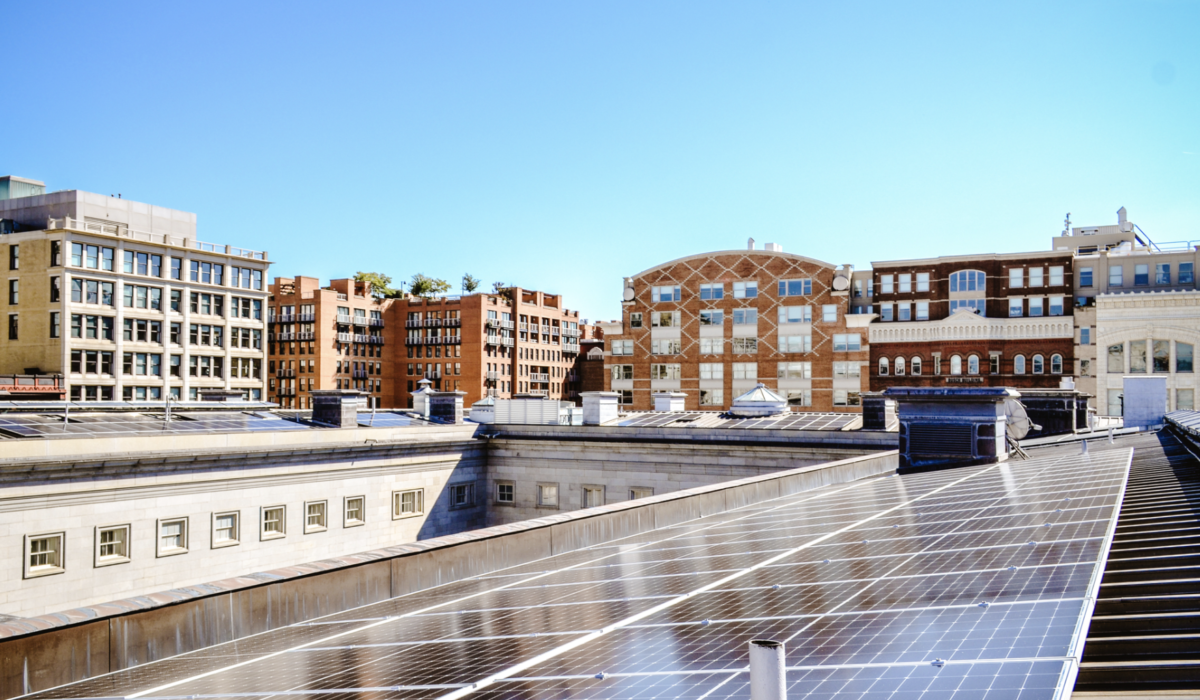
To perform the work, Fortis tapped one of its strategic contractor partners, Fairfax, Virginia-based SmartRoof. SmartRoof worked closely with the Fortis team from the start, including the initial roof evaluation. “We walked the roof with them and knew exactly what had to be done,” says Patrick Pennefather, SmartRoof’s service manager. “We were always on the same page.”
Challenges included limited roof access and ensuring the hotel’s schedule was not interrupted. “This was a very high-profile job with a lot of moving parts,” Pennefather says. “The hotel was open and active, and coordinating times for drop-offs was a bit of a challenge. Once we got into the flow of it, it was a lot easier to accomplish the work. You don’t really see the roof from the street, so once we were up there, we could move around pretty freely.”
The metal and EPDM roofs had been well maintained and were in good condition. Most of the work focused on the metal roof, and crews checked every screw, panel, seam and penetration. “We walked the roof with 622 Terminator from American WeatherStar — it’s a high-quality sealant that has a good bit of elasticity to it — and we put that on every single fastener on that metal roof, because generally that’s where you might see leaking issues develop,” Pennefather says. “That was the brunt of the work, which was very time consuming. We tightened the fasteners and put sealant over every single one.”
The EPDM roof needed some minor reconditioning, and all perimeter flashings were reinforced. “We also addressed some of the scuppers, which had to be re-flashed,” Pennefather says. “We had to seal up a few holes, refresh some seams, and apply lap sealant where needed. Fortis is very good at taking a look at a roof and understanding how to get it to a watertight condition for an extended period of time.”
The Solar Array
Once the roofing work was approved by Fortis, New Columbia Solar’s team installed the photovoltaic system and connected it to the building. More than 590 solar panels were installed on non-penetrating racks.
Chris Amoss, director of project management for NCS, pointed to the placement of the conduit as a key challenge. “One of the biggest hurdles I remember was figuring out how to interconnect the system without violating any of the regulations of the Commission of Fine Arts or the Downtown Historic District,” Amoss notes. “We had to make sure that none of the solar modules or conduit was visible from the street or sidewalk in order to preserve the historical aesthetic. We finally found a way to run the conduit through the roof and down through the courtyard.”
The system provides 316,000 kilowatt-hours of on-site energy per year and is expected to provide nearly 7 million kilowatt-hours over the system’s expected 20-plus years of operation.
As part of its ongoing program, Fortis conducts periodic inspections and provides any additional reconditioning work that is needed on the roof. “We stay proactive on the roof and go out on regular inspections over the term to make sure the roof is performing,” Schupmann says. “Our warranty even covers normal wear and tear of the materials in the roof system. If on an inspection we see, for example, rusted metal, or missing fasteners, or gutter damage, those are all things we would recondition. The customer is still responsible for basic maintenance items like keeping their waterways clean and keeping debris off the roof, but as far as the performance aspects of the roof, those are all things that are covered by us.”
Successful Outcome
The companies involved in the project believe its success showcases the possibilities of adding solar power to existing buildings. In this case, a full roof replacement was not necessary — and would have been far more costly, disruptive and time consuming, according to Schupmann. “Our solution saved the customer well over $650,000 from other proposed options, provided the long-term surety they needed to build solar on their roof, and allowed them to keep their historical aesthetics in place,” Schupmann says. “We also provide an ongoing performance program that will keep us active on the roof and provide ongoing work at no additional costs to the customer through the term of our warranty.”
New Columbia Solar’s CEO, Mike Healy, points to the project as proof positive that NCS can power federally owned historic buildings in the heart of the district with energy from the sun. “Working on a Federal Historic Landmark building is a monumental achievement for us,” Healy says. “This pivotal project is an example of how the district’s historic preservation, modernization, and climate priorities can be successfully blended, embodying the commitment to expand locally sourced solar energy in the district. We continue our efforts to make it as easy as possible for property owners like Hotel Monaco to go solar in the hopes that many more historic buildings will follow suit.”
TEAM
Solar Energy Company: New Columbia Solar, Washington, D.C., newcolumbiasolar.com
Roof Performance Program: Fortis, Denver, Colorado, fortis.us.com
Roofing Contractor: SmartRoof, Fairfax, Virginia, smartroofinc.com
MATERIALS
Solar Modules: SEG-450-BMA-HV, Seraphim Energy Group, segsolar.com
Inverters: SE43.2K-US, Solaredge, solaredge.com
Solar Racking: SolarMountRails, Unirac, unirac.com
Solar Attachment: S-5-H90 Clamp, S-5!, S-5.com
Roof Sealant: 622 Terminator, American WeatherStar, americanweatherstar.com
By the Numbers
- Kimpton Hotel Monaco received a 20-year Fortis program with a performance guarantee.
- Annually, the program and warranty break out to a cost of just 21 cents per square foot.
- This RPP solution saved the hotel over $650,000 versus replacement options.
- The total financial benefit the hotel received for this solution was over $1 million, with an ROI of 460% for the roof alone.
- Metric tons of CO2 saved: 784.3
- Metric tons of roofing waste saved from landfill: 336.8
- Barrels of oil saved: 154.7

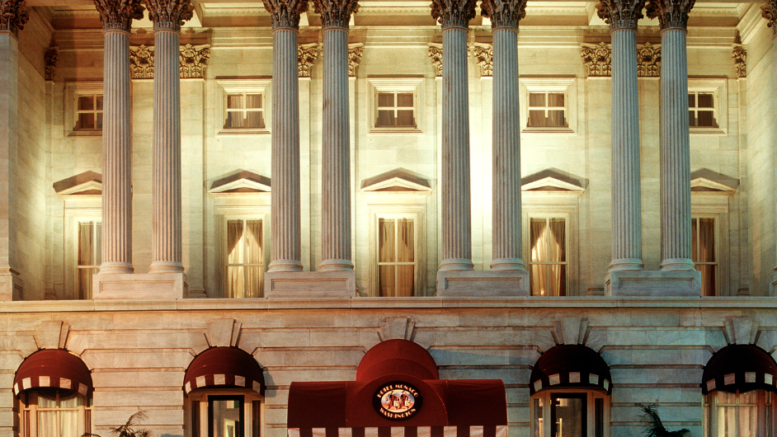
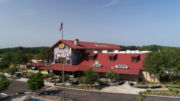

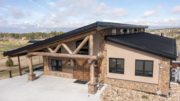
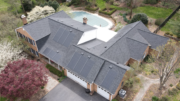
Be the first to comment on "Photovoltaic System Added to Landmark Building in the Heart of Washington, D.C."